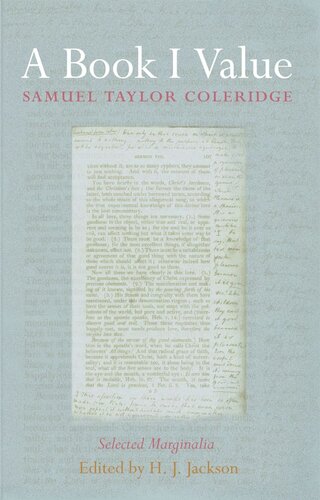

Most ebook files are in PDF format, so you can easily read them using various software such as Foxit Reader or directly on the Google Chrome browser.
Some ebook files are released by publishers in other formats such as .awz, .mobi, .epub, .fb2, etc. You may need to install specific software to read these formats on mobile/PC, such as Calibre.
Please read the tutorial at this link: https://ebookbell.com/faq
We offer FREE conversion to the popular formats you request; however, this may take some time. Therefore, right after payment, please email us, and we will try to provide the service as quickly as possible.
For some exceptional file formats or broken links (if any), please refrain from opening any disputes. Instead, email us first, and we will try to assist within a maximum of 6 hours.
EbookBell Team

0.0
0 reviewsColeridge is such a celebrity that many who have never read "The Rime of the Ancient Mariner" have a fair idea who he was, and yet the common impression of him is not flattering. He is typically seen as a youthful genius transformed by drugs and philosophy into a tedious sage. It is time for a change of image. A Book I Value offers a one-volume sampling of Coleridge's encyclopedic marginalia, revealing a figure more complex but also more humanly attractive--clever, curious, playful, intense--than the one we are used to.
This book makes a convenient introduction to Coleridge's life, the intellectual issues and contemporary concerns that held his attention, and the workings of his mind. The marginalia represent an unintimidating sort of writing that Coleridge famously excelled at (often in books borrowed from friends). "A book, I value," he wrote, "I reason & quarrel with as with myself when I am reasoning."
Unlike the complete Marginalia in six volumes arranged alphabetically by author, this representative selection is chronological and footnote-free, with a contextualizing introduction and brief headnotes that outline Coleridge's circumstances year by year and provide essential historical information. Our own cultural taboo against writing in books is slackening in light of new interest in the history of the book. It will be weakened further by the extraordinary and now accessible example of Coleridge, who was a remarkably shrewd but at the same time a remarkably charitable reader.